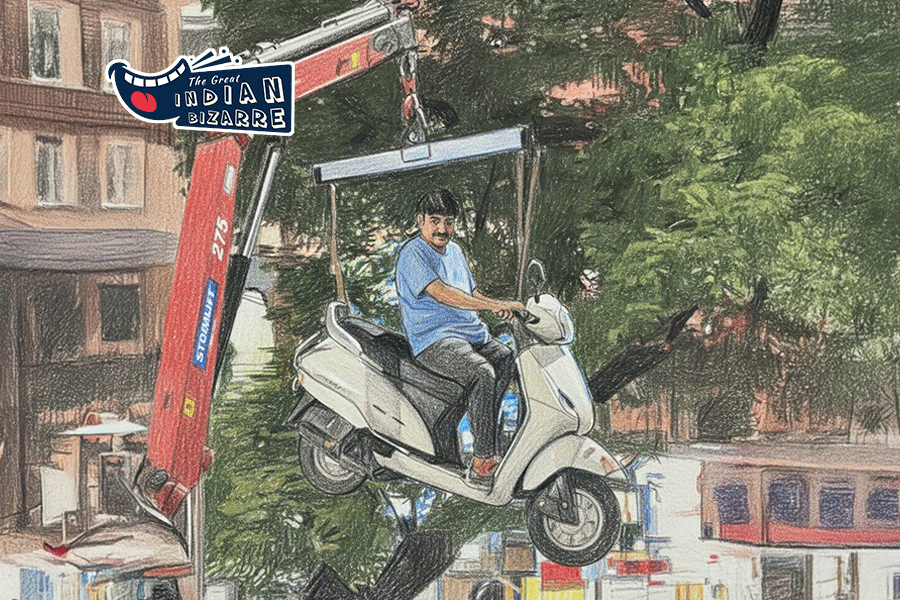 |
| Missionary zeal |
When Sanjay Gandhi popularized the slogan, “Kaam zyada, baatein kum— more work, talk less”, I met Verghese Kurien in his farm. He epitomized the slogan in its human form. I was living in Bombay then and took a few days off to spend with his family in Anand. It was a refreshing experience to be in the open grasslands among herds of cows and buffaloes. Neither of the Kuriens took time off from work; the only company they kept were with the herds of cows and buffaloes and the milkmen who owned them. Y.K. Alagh, who was closely associated with Kurien, has paid him handsome tribute in a recent issue of India Today. I take the liberty of quoting him:
“Verghese Kurien was a man who changed the discourse. For him, the poor, unemployed farmer with no resources was never a problem. He felt if a farmer could access technology and markets, he would be an asset. Having seen the dream, he would not budge. Like all men of his genre, he was willing to engage but not change.
Then Amul became the symbol of all that was India. If an idea was presented and he could weave it into his view at Amul, he would push for it. In the many words written since last Sunday, some are worth recounting. The first was the buffalo. Kurien can be credited for the global recognition of the buffalo as an important war horse in Asiatic peasant farming... The first time he invited me to get involved was in an international conference where the theme was the buffalo. We are not doing enough but we are one of the few countries in the world that spends money on genetically improving the buffalo. It all goes back to the Dudhwala and his band of missionaries.”
Lazy daisy
I have already written about this and would like to reiterate that India has more public holidays — in my estimate, nearly 50 every year — than any other country in the world. Sometimes, there are three holidays together in one week that causes lot of inconvenience to the public. As a consequence, we are work-shy and the least work-prone nation in the globe. Since we are work-shy, we tend to produce less and remain a poor country. I have written in the past and repeat it here again that we Indians work only three days a week. On the other hand, the Chinese work eight days a week.
Consequently, their rate of development is much faster than ours. They outpace us in every sphere of activity — be it in farming, working in factories or offices or in sports. They had little trouble in giving us a sound thrashing when we went to war against them. They continue to thrash us in every field of activity, including sports. They produce world champions; we do not. They have a work mentality, we have chhutti (holiday) mentality. How on earth can we catch up with the advanced nations of the world in this way? We have to radically change our mindset or we will remain the most backward nation in the globe.
Poetic outrage
Persons who welcome death
Are heroes only at times.
When they fight as soldiers
For our country on our borders;
But those who drive
Without helmets on scooters,
On motorbikes; and what not?
Are they heroes when they die
Due to sheer carelessness.
Or dare-devil due
To youth’s aggressive behaviour?
And stubborn — do not listen
To their elders nor even
Heed the wise rules of the nation?
(Indira Srinivasan in Poets International)
Collective soul
The English language has some wonderfully anthropomorphic collective nouns for various groups of animals.
We are all familiar with a herd of cows, a flock of chicken, a school of fish and a gaggle of geese. Then, a pride of lions, a murder of crows (as well as their cousins, rooks and ravens), an exaltation of doves, and, presumably because they look so wise, a congress of owls.
Now consider a group of baboons. They are the loudest, most dangerous, most obnoxious, most viciously aggressive and least intelligent of all primates.
And what is the proper collective noun for a group of baboons?
Believe it or not — a parliament — a parliament of baboons!
Flying high
Banta has demanded that the new airport at Mumbai be named Banta Cruz. Santa already has an airport named after him — Santa Cruz.
(Contributed by Vipin Buckshey, New Delhi)











